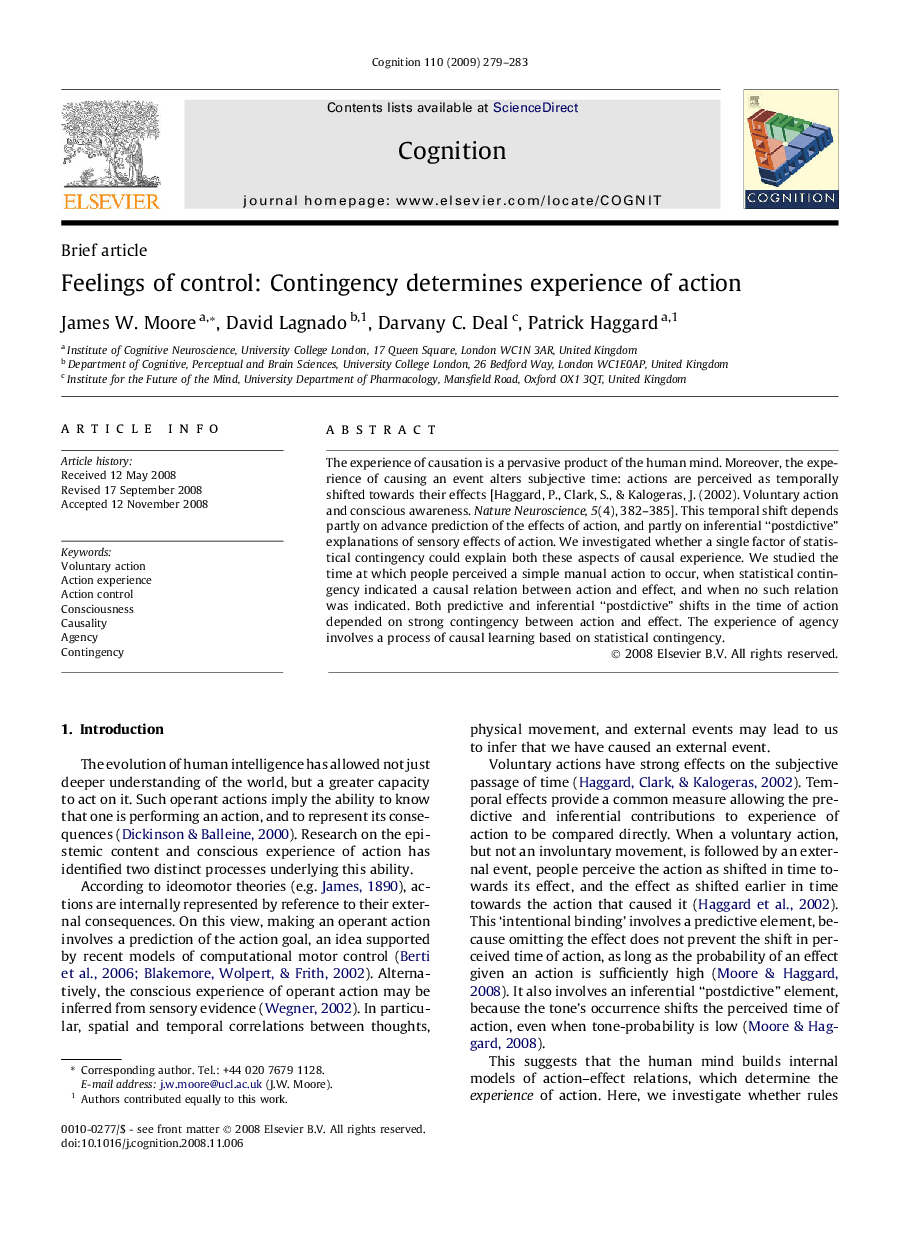| کد مقاله | کد نشریه | سال انتشار | مقاله انگلیسی | نسخه تمام متن |
|---|---|---|---|---|
| 927240 | 921955 | 2009 | 5 صفحه PDF | دانلود رایگان |

The experience of causation is a pervasive product of the human mind. Moreover, the experience of causing an event alters subjective time: actions are perceived as temporally shifted towards their effects [Haggard, P., Clark, S., & Kalogeras, J. (2002). Voluntary action and conscious awareness. Nature Neuroscience, 5(4), 382–385]. This temporal shift depends partly on advance prediction of the effects of action, and partly on inferential “postdictive” explanations of sensory effects of action. We investigated whether a single factor of statistical contingency could explain both these aspects of causal experience. We studied the time at which people perceived a simple manual action to occur, when statistical contingency indicated a causal relation between action and effect, and when no such relation was indicated. Both predictive and inferential “postdictive” shifts in the time of action depended on strong contingency between action and effect. The experience of agency involves a process of causal learning based on statistical contingency.
Journal: Cognition - Volume 110, Issue 2, February 2009, Pages 279–283